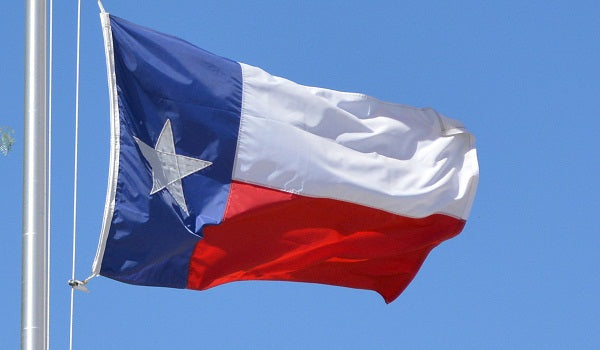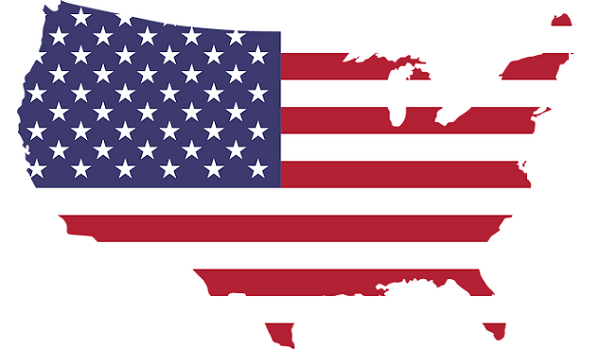A note from the publisher: Since the publication of this article, the FDA has approved a CBD-based prescription drug for two special types of epilepsy.
It's no secret that cannabis products, including CBD oil, live in a complex legal environment in the U.S. Answering the question, “Is CBD oil legal?” isn’t as simple as one would hope. Part of the problem comes down to confusion in the language. Marijuana, cannabis, and hemp are often used interchangeably, even if there are significant differences between the products described.
Technically speaking, the federal government continues to classify marijuana, even the medical variety, as a Schedule I substance. But that classification doesn’t necessarily cover any derived hemp products like CBD oil.
It also hasn’t stopped approximately 29 states from modernizing the legal status of the plant within their state borders. Some have gone the route of full-blown legalization for both recreational and medicinal use; others attempted to confirm the legality of hemp-derived CBD oil.
RELATED: What Is CBD Oil? A Beginner's Guide to Cannabidiol
Nearly every day, across the country, there are developments on the legal status of cannabis, on a state-by-state basis. The whole country is starting to open up to the idea that CBD and, more broadly, cannabis products, offer legitimate, all-natural alternatives to conventional pharmaceuticals. Some of the more exciting recent developments have come out of Indiana.
Indiana Legalizes CBD Oil

The newest state to jump on board the cannabis bandwagon is Indiana. In January, the Indiana House voted to legalize the use of hemp-derived CBD. This ruling came after months of confusion about the legal status of CBD in this state. The uncertainty is fair, considering some of the confusion going on in the rest of the country. [1]
Some of the confusion on CBD within Indiana state lines came from Attorney General Curtis Hill. He continues to assert that CBD oil extracted from marijuana is illegal, irrespective of the final THC content. He stated in a 2017 op-ed that “legalizing marijuana is a road to nowhere good”, but in the letter, he only succeeded to make convincing arguments regarding the smoking of marijuana. [6]
Although some patients in Indiana had been approved to use CBD oil to treat their epilepsy, Hill puzzlingly continues to fight this approval. Fortunately, according to the January ruling, the state legislature firmly believes otherwise. Now, Indiana circumvents any contradictions with the Drug Enforcement Agency’s classification of marijuana-derived CBD oil, because they protected it as an industrial hemp product. In fact, the Indiana House made their decision more than clear - they voted 93-0 in favor of the change. [2]
RELATED: 5 Unique Facts About Cannabidiol and CBD oil
Is CBD Legal in Texas?

Another state slowly dipping its toes into the use of cannabis as an epilepsy medicine is Texas. Although it could be a few years before Texans see marijuana dispensaries opening up around the corner, what about hemp derived products? Is CBD oil legal in Texas?
As of 2015, state law allowed for the prescription and sale of low-THC cannabis, or CBD oil with less than 0.5 percent THC, and at least 10 percent (pretty standard) CBD to patients with severe or intractable epilepsy. [3]
Furthermore, lawmakers specified that epileptic patients who have tried two or more prescription medications without improvement might be prescribed cannabis oil for treatment. In the case of minor patients, the law requires “two separate opinions from two different doctors certified to dispense medical cannabis.” The products can also only be bought from a state-licensed dispensing organization, with a licensed doctor’s prescription. [5]
RELATED: Proven Again: CBD Reduces Seizures in Rare Epilepsy
Unlike many other states with legal medical CBD laws, the Texas law, which allows for the use of CBD for treatment of otherwise drug-resistant epilepsy, also provides for dispensing organizations to cultivate, process, and distribute the medical cannabis themselves. [3]
Considering the change in law was nearly three years ago, it's taking some time for the product to get to the patients that need it. The first delivery of CBD oil just happened, in early 2018. There are also relatively few doctors registered to prescribe it in the entire state. Change is coming in Texas, but it is slow going.
Is CBD Legal in The Rest of the Country?

There is a lot of confusion about the legal status of hemp-derived CBD oil, and not surprisingly, considering the fluidity of the terminology. For the intents and purposes of this piece, ‘marijuana’ refers to the medicinal and recreational plant with high(er) THC content. ‘Cannabis’ refers to the plant species as a whole, including all strains, and final uses.
Hemp, on the other hand, describes a plant grown for properties beyond its THC content. It legally must contain less than 0.3 percent THC (in some states, 0.5 percent). Due to the low THC content, hemp and hemp-based products like CBD oil are legal in all 50 states. This development is thanks to the relatively recent change to the Farm Bill in 2014.
According to the change, the Farm Bill authorizes higher-education institutions or State Departments of Agriculture to grow ‘industrial hemp’ for “research conducted under an agricultural pilot program, or other agricultural or academic research,” with the provision that state law permits the growth and cultivation of the plant. [4]
Unfortunately, the clarification from the Farm Bill still managed to muddy the waters from the DEA’s perspective. They continue to classify all things cannabis as Schedule I. Thankfully, the law seems to be siding with state laws.
As of 2016, the Ninth Circuit Court of Appeals made clear that the DEA cannot cross state lines to prosecute individuals who comply with local medical marijuana laws. While the wheel of appeals is ongoing, this ruling did help clear up the division between state and federal laws on all things marijuana. [4]
RELATED: Is CBD Hemp Oil Legal in All 50 States?
Where Does CBD's Legal Status Leave Patients?
Because federal and state laws and some federal departments continue to contradict each other and even themselves, hemp-based CBD falls in a legal grey area. You’re not alone if you find this confusing, and depending on your state, potentially concerning. Can you get access when you need it where you need it?
The United States federal laws allow for the import and distribution of hemp-based products. It has also allowed for the production, processing, and sale of hemp products grown in the U.S., provided they have the appropriate approvals. [7]
But what if your state has not allowed for a local dispensary? People living in uncooperative states may consider accessing hemp-based products via an online retailer. While patients need to keep a close eye on quality, there are good options available.
Ultimately, the DEA is only concerned with psychoactive strains of cannabis, which are the plants with over 0.3 percent THC. The FDA, on the other hand, is more concerned with disreputable sources of CBD making false health claims about their products.
RELATED: Are You Using Organic CBD Oil?
Is CBD oil legal in Texas? In Indiana? “Yes, for epilepsy patients”, to both. According to the most recent developments, at least 18 states specifically allow for CBD for medical purposes. This number doesn’t even account for the approximately 50 percent of states which have opened up their cannabis laws even beyond hemp-based CBD oil.
The number of individual states with open medical cannabis laws is very quickly starting to outnumber those without. Sooner than later, the DEA will need to reconsider its stance on all things cannabis, including its hard stance on CBD oil.
Sources:
[3] http://www.safeaccessnow.org/texas_legal_information
[4] https://www.sciencedirect.com/science/article/pii/S1525505016305856
[5] http://www.safeaccessnow.org/becoming_a_caregiver_producer_or_provider_in_texas
[6] http://cbs4indy.com/2017/11/09/attorney-general-curtis-hill-legalizing-marijuana-is-a-road-to-nowhere-good/
[7] https://help.cbp.gov/app/answers/detail/a_id/1751/~/importing-hemp-products-into-the-u.s




























